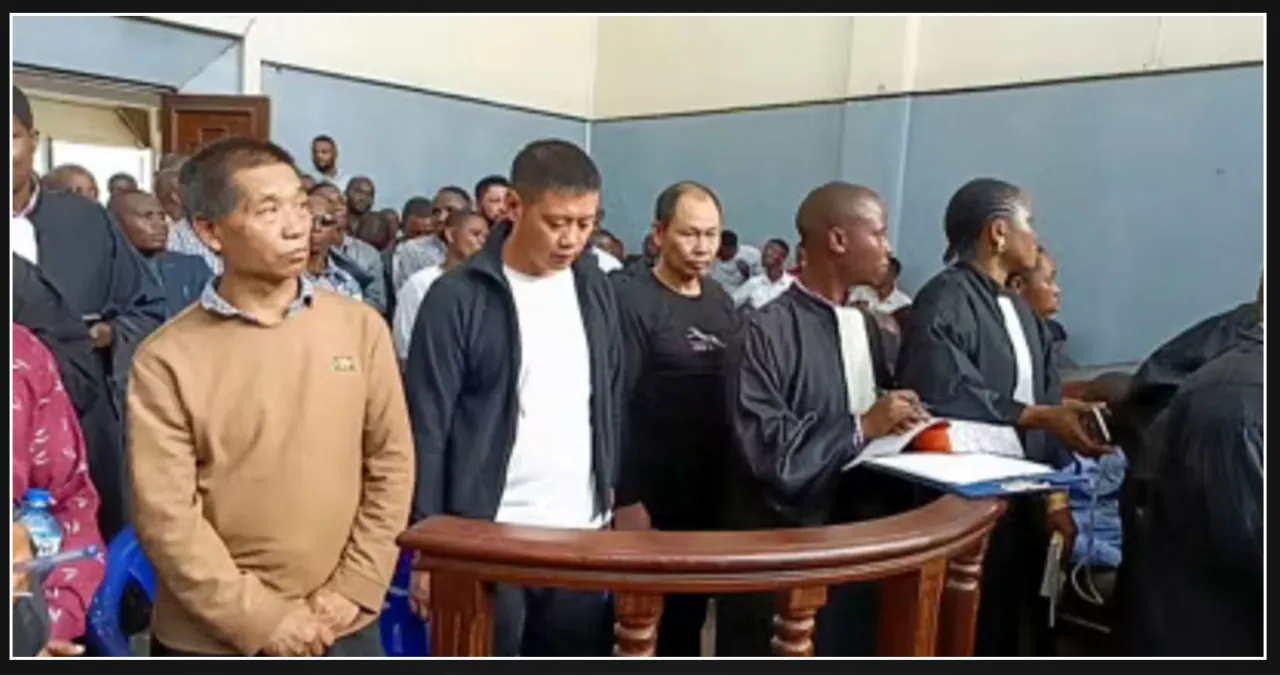Three Chinese nationals have been sentenced to seven years in prison by a court in the Democratic Republic of Congo for their involvement in illegal mining activities.
Late Tuesday, the court in Congo’s gold-rich South Kivu province, specifically in the eastern city of Bukavu, handed down sentences to the men. They were found guilty of engaging in illegal mineral purchase and possession, as well as money laundering and various other offenses.
On Sunday, authorities discovered the suspects carrying a significant amount of cash totaling $400,000, along with a substantial quantity of gold. This discovery has raised concerns regarding the magnitude of their activities and the possible connection to organized networks.
In a press conference on Monday, Jean Jacque Purusi, the governor of South Kivu province, expressed the exhaustion felt by the local population towards those who exploit the nation’s resources.
“We will not let go of what they have taken from us. This is just a fraction of what they’ve already seized. This wealth belongs to the people of South Kivu, and we are resolute in our determination to reclaim it. Enough is enough,” declared Purusi.
According to Jean Paul Kasinga, a local official, it is quite uncommon for someone to be carrying such a substantial amount of money while on the move.
“They were working without any official documentation, without the government’s knowledge.”
According to Etienne Mutware, a lecturer at the Evangelical University in Africa in Panzi, Bukavu, illegal mining activities deprive the local community of potential revenue.
Mutware, in an interview with VOA, highlighted the intended advantages of partnerships, such as the development of infrastructure and schools. However, the unfortunate presence of fraud, corruption, and illegal mining in the Congo has hindered the realization of these expectations, leading to substantial losses for both the people and the country.
In an effort to combat illegal mining and promote sustainable practices, Purusi took the decision to suspend mineral mining operations in July. This measure was implemented to ensure that all mining activities are conducted within the confines of regulations and to protect the long-term viability of the industry.
In December, religious groups and members of civil society in South Kivu’s Mwenga territory expressed their concerns about the activities of Chinese mining companies by taking to the streets. The protesters called for infrastructure development and greater accountability from foreign companies.
According to one protester who spoke to VOA’s Central Africa Service, the Chinese companies located in the towns of Lugusha, Kitutu, Kaboke, Suguru, and Mitobo have not lived up to their promises. These companies had pledged to construct schools, bridges, roads, hospitals, and a stadium, as well as offer scholarships to local students. However, they have failed to deliver on any of these commitments.







Leave a Reply